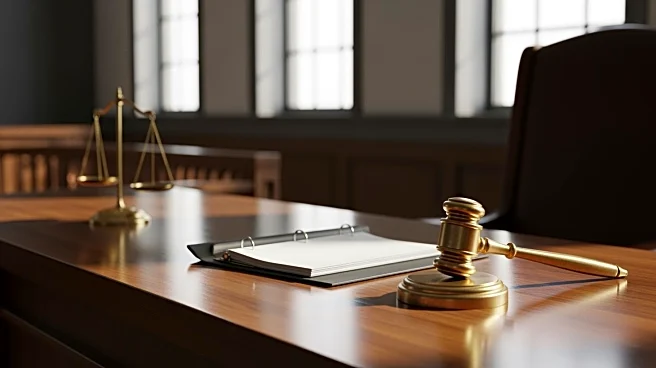What's Happening?
A federal judge has dismissed indictments against former FBI Director James Comey and New York Attorney General Letitia James, citing the unlawful appointment of interim U.S. Attorney Lindsey Halligan. The judge, Cameron McGowan Currie, ruled that Halligan lacked
the legal authority to present the indictments, leading to their dismissal 'without prejudice.' This legal term indicates that the cases can be refiled if the procedural issues are corrected. The Trump administration had appointed Halligan's predecessor, Erik Siebert, as interim U.S. Attorney, but his resignation did not authorize a new appointment by the administration. The power to appoint remained with the district court judges, rendering Halligan's appointment void.
Why It's Important?
The dismissal of these indictments highlights significant procedural issues within the Department of Justice under the Trump administration. It underscores the importance of adhering to legal protocols in appointing interim U.S. attorneys, which can impact high-profile cases. The ruling may affect the ability to prosecute Comey, as the statute of limitations on his charges has expired. This development could influence future legal strategies and appointments within the DOJ, emphasizing the need for compliance with federal law in judicial appointments.
What's Next?
The Department of Justice may appeal the rulings or refile the cases after appointing a new U.S. attorney in accordance with legal procedures. However, the statute of limitations on Comey's charges may prevent further prosecution. The Trump administration must follow proper appointment procedures to avoid similar legal challenges in the future. The outcome of any appeals or new filings will depend on adherence to legal protocols and the appointment of a valid interim U.S. attorney.
Beyond the Headlines
This case reflects broader issues of legal authority and procedural compliance within the U.S. judicial system. It raises questions about the impact of political appointments on legal proceedings and the importance of maintaining judicial independence. The case may prompt discussions on the balance between political influence and legal integrity in the appointment of U.S. attorneys, potentially leading to reforms in appointment processes.
















